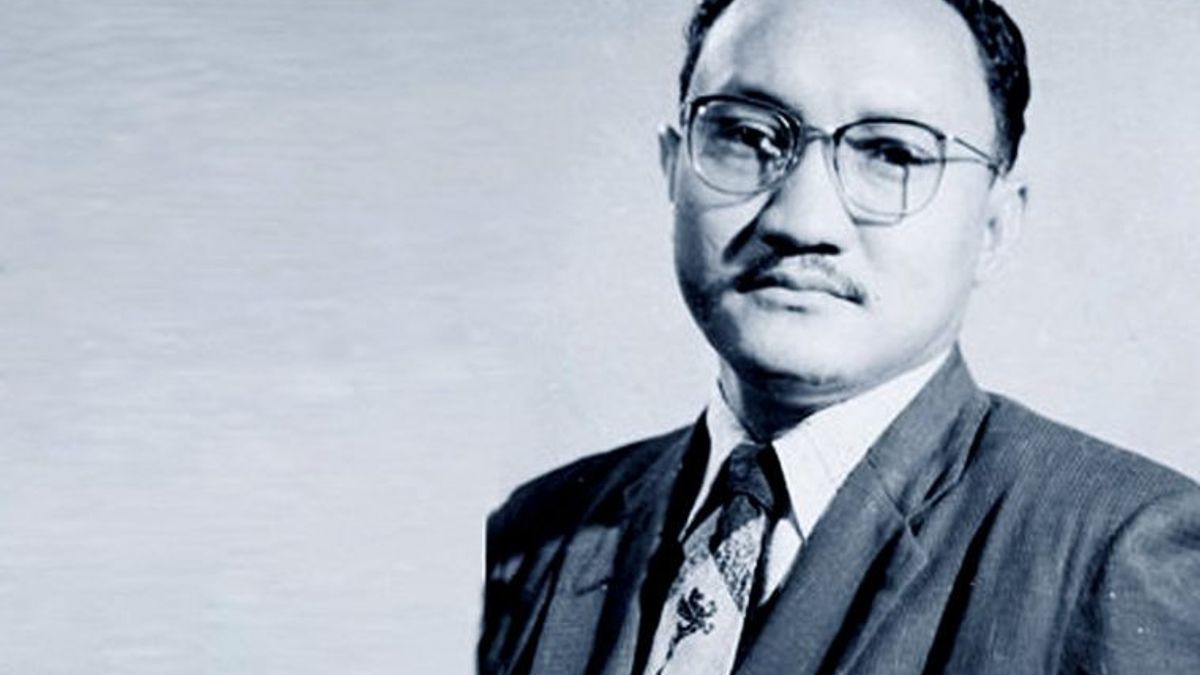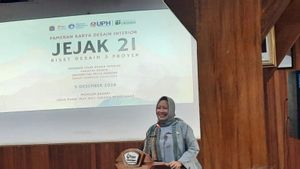JAKARTA - Thursday, October 28, Coordinating Minister for Political, Legal and Security Affairs (Menko Polhukam) Mahfud MD has officially announced the awarding of the Hero title to Usmar Ismail. The father of Indonesian film will be awarded the title of national hero on November 10 or to coincide with Heroes' Day by President Joko Widodo at the Bogor Palace.
Besides Usmar Ismail, there will be three other figures who will be named national heroes, namely Kunciatutu from Central Sulawesi, Sultan Aji Muhammad Idris from East Kalimantan, and Raden Ayra Wangsakara from Banten.
Usmar Ismail is known as a pioneer of cinema and a pioneer of modern drama in Indonesia. Born in Bukittinggi, West Sumatra, on March 20, 1921, Usmar made his debut in the film industry when he became an assistant director for the film “Gadis Desa” (1949). At that time, he was invited by Andjar Asmara to join the Dutch-owned film company, South Pacific Corporation, after he was released from detention on charges of subversion by the Dutch while working as a journalist at the Antara News Agency.

Still in the same year, namely 1949, he was trusted to direct the film "Harta Karun", followed by the film "Tjitra" based on a drama script he wrote during the Japanese era.
However, these films did not bring him satisfaction, so he founded his own company Perfini on March 30, 1950 with several friends using the severance pay he had pocketed. On the same day, he finally did his first filming of “Blood and Prayer” or often called “Long March Siliwangi” which was located in Purwakarta and Subang.
The film "Blood and Prayer" is said to be the birth of Indonesia's first national film. In the production of this film, Usmar recruited players who had absolutely no experience in acting. Actors such as Del Yuzar, Awaluddin Djamin, Aedy Moward, Farida, are not professional actors.
The film is the first film about Indonesian people in the revolution. Tells about the character of Captain Sudarto in the long journey of the Siliwangi Division from Yogyakarta back to West Java in 1948 or after the approval of Renville.
“Blood and Prayer” had sparked debate, especially from army officers, because the film was deemed not to depict an officerhood and to describe the weaknesses of a member of the army.
However, Usmar said that Sudarto's character in "Blood and Prayer" is not a hero in the general sense. He wanted to portray a soldier who was involved and dragged by the current of the revolution with a human side frame.
“I was attracted to Sudarto's story because it honestly tells the story of Indonesian people without falling into a cheap propaganda film,” wrote Usmar in an essay entitled “My First Film”, quoted from Rosihan Anwar in the book “A small history of 'petite histoire' Indonesia; Volume 2” quoted from ANTARA.filfil
After “Blood and Prayer”, he immediately started his second production with the theme of the struggle of the revolutionary era, namely “Six Djam di Djogja” (1951).
In 1952, he received a scholarship from the Rockefeller Foundation to study cinematography at the University of California Los Angeles. Rosihan Anwar said that Usmar seemed more proficient in working on film productions after returning from America than his first work thanks to his knowledge of cinematography and dramaturgy.
In the following years, Usmar also made the film "Past Midnight" (1954) with Persari led by Djamaluddin Malik. Through Perfini, he produced “Pedjuang” (1959) which won the best actor award at the Film Festival in Moscow (1961).
A series of films produced by Usmar include "The Unmerciful Sin" (1951), "Accept My Song" (1952), "Kafedo" (1953), "Krisis" (1953), "Tamu Agung" (1955), "Three Dara" (1956), and so on. Usmar Ismail's last film was Ananda (1970), after which on January 2, 1971 Usmar died at the age of almost fifty years.
The English, Chinese, Japanese, Arabic, and French versions are automatically generated by the AI. So there may still be inaccuracies in translating, please always see Indonesian as our main language. (system supported by DigitalSiber.id)












